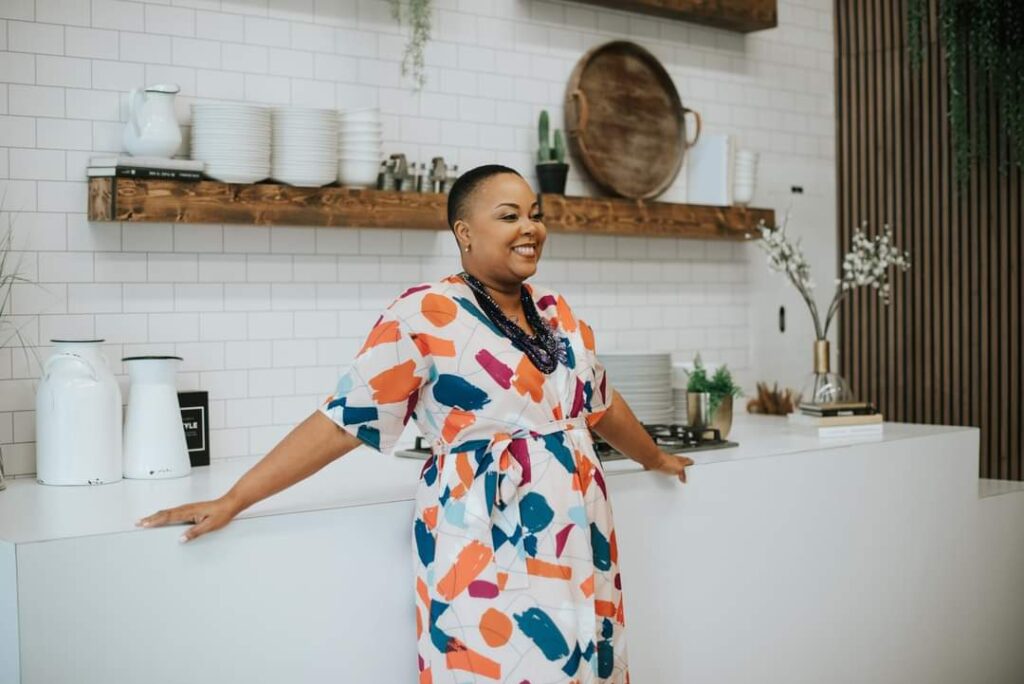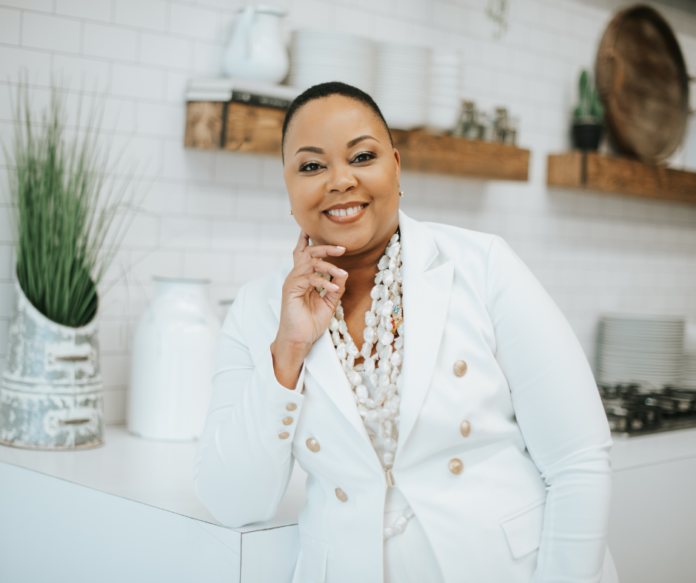( ENSPIRE Interviews ) Kescha Wilson Talks Her Company, Burnout and the Effects of Feeling the Burn
ENSPIRE Contributor: Megan Sydow
Kescha Wilson, an HBCU graduate and former mentor for FBI agents, sat down with ENSPIRE Magazine to discuss a topic we have all struggled with at one point or another: burnout. She gives us tips and tricks to prevent this phenomenon, and how to navigate it when it does hit.
With backgrounds as a chemist for the Tennessee Nuclear Fuel Service and a Special Agent in the FBI, along with the full-time role of being a mother, wife and caregiver to her aging mother, Wilson says she has a lot of experience with burnout, and now uses her company Design Her Queendom as a way to teach other women how to navigate burnout and recover from it.

Did any of the career paths you have taken influence you to dedicate your time and effort to helping women with burnout? If so, which ones and how did they inspire you?
I experienced extreme exhaustion while I was working as a Special Agent with the FBI and ultimately left my career. I did not have the language for what I had experienced. After I had a better understanding, I began searching for resources and support to help me navigate it. Very few of those resources really spoke to the heart of what I had gone through. I knew if I had experienced it, there had to be more women like me. It did not take long for those in my network to become curious about why I had left my career. One by one, women began inviting me to lunch and afternoon chats as I shared my experiences. My recovery journey and sharing what I discovered ultimately led me to help women leaders learn how to put themselves first while managing the demands of careers and the responsibilities of home.
Although law enforcement is deemed one of the most stressful professions, there are women across all sectors feeling exhausted. I believe burnout is not just a workplace phenomenon. There is an intersectionality to burnout that can encompass a myriad of personal and professional contributions. I have seen women burnout because of traumatic birth experiences, children with complex medical needs, caring for chronically ill loved ones, workplace discrimination and microaggression, unhealthy relationships, and a host of other factors.

How can people prevent and manage burnout (if it happens)? How do you get out of a burnout slump?
One of the first steps you can take to prevent and manage burnout is to pay close attention to the signals your body and life are sending. Recognizing your unique signs is a game changer. Think about how your body responds to stress. What do you feel and where? Think about what shows up in your environment that alerts you that something is off. When you are in tune with this and make this a part of your daily practice, it gives you an opportunity to track, mitigate, and get the support you need to navigate how you manage your stress. This could mean you need more rest, better nutrition, exercise, more intentional boundaries, greater time margin in your schedule, or other forms of self-care.
I believe everyone has their own unique burnout formula. There are many factors that contribute to this formula such as your coping mechanisms, your roles and responsibilities, and a special combination of circumstances that may turn your world upside down (for example an unexpected health crisis). This means that the way you address burnout has to be customized specifically for you and your needs. This is why many people following trendy and often commercialized self-care prescriptions like spa days, manicure and pedicures, facials, and luxury vacations come home having checked those things off with little to no result in return.
If you have a burnout event or in a burnout slump, implement these four steps: confine, create, care, and find the culprit.
1) Confine: identify what area is most impacted by your burnout and what is the biggest contributing factor. You have to confine and put boundaries around the area of your life that needs the most attention and treat it like a fire. Is it your physical, mental, emotional, or spiritual health? Is it a personal or professional contribution?
2) Create: clear space in your life to deal with this crisis. Stop doing extracurricular and non-essential tasks. Delegate key responsibilities to a trusted person. Automate whatever you can.
3) Care: give yourself permission to get the immediate attention and support you need. Ask for help and accept help around that area. If you are in a mental health crisis, seek mental health support. If you are experiencing a physical health crisis, seek medical attention. Establish routine care around your greatest area of physical, mental, emotional, or spiritual need. Incorporate a daily wellness check to track how you feel, what your stress levels are, and how you will prioritize yourself for the day.
4) Culprit: get to the root of why you are in burnout and what contributing factors caused it. Are you taking on too many tasks at one time? Are you shouldering most responsibilities? Are you people-pleasing? This would be a good time to seek a burnout recovery mentor to help you discover the cause and determine strategies to lessen the likelihood of relapse.

What are the effects of experiencing burnout, and how can it affect us in the long run?
I believe we have not scratched the surface of all the long-term effects of burnout. I have talked to women who have had strokes, autoimmune conditions activated, hair loss, fertility challenges, chronic and debilitating pain, memory issues or brain fog, and the list goes on. Some of them received diagnoses, but many have no answers to what is happening in their bodies.
Burnout can impact every area of your life such as your relationships, your mental and emotional health, your career, and your financial health. It can take a toll on your self-confidence, self-trust, and your quality of life as you age. Outside of the individual impact, there is a significant consequence to workplace productivity, healthcare costs, and revenue loss that can be felt globally.
What are the “VIP Day” and workshops that your company Design Your Queendom holds, and are there any other services specific to your company that you offer?
Our VIP Day is an accelerated experience in which we spend up to 6 hours with a client deep diving and identifying the cause of their overwhelm, restructuring their work-life systems, and creating a strategic plan on how to re-prioritize themselves at work and home. We offer a group program that helps participants prioritize and stabilize themselves as they navigate their burnout recovery. We offer workshops, training, and events that focus on burnout recovery, embracing more ease, prioritizing and planning your self-care, navigating life’s unexpected events while maintaining your wellness, as well as other related topics.

How does your company stand out from the rest and why is it important that women seek your company for help with burnout?
Our company stands out from the rest because we focus on the care of the woman not just how much she produces, how well she performs, or how well she serves others. We care about helping our clients prioritize themselves which invites more joy, fulfillment, peace, harmony, and ease into their lives. From that place, they automatically produce and serve at exceptional levels without sacrificing their dreams and wellness. According to some of our former clients, they feel seen and their experiences validated. Our company has provided a safe place for them to see their burnout recovery journey reflected them with a level of vulnerability that they’ve not experienced before. If you are a resilient woman leader desiring to have more ease in your life, be fully present for the people you love, and still make an impact in the world, you are in good hands.
Related articles: Personal Day: How To Enjoy Time Off From Work, Tips for Making the Workplace Better for Employees







